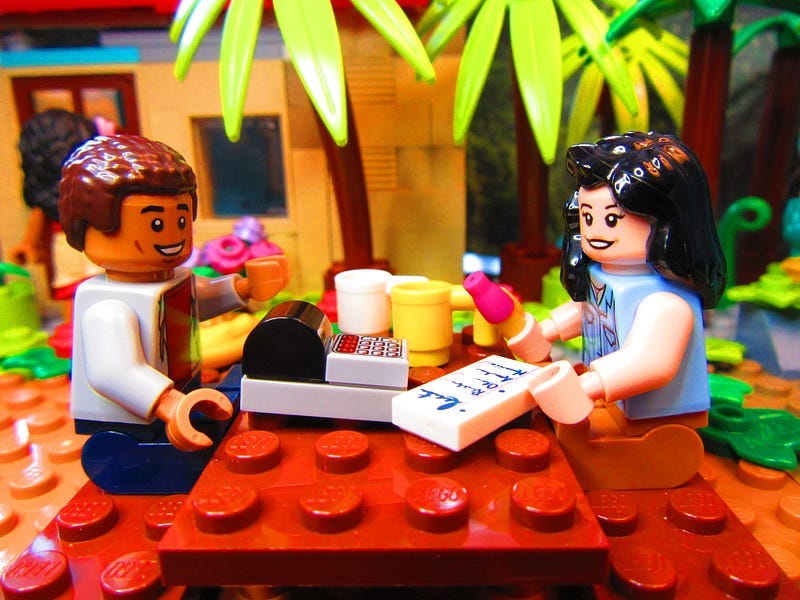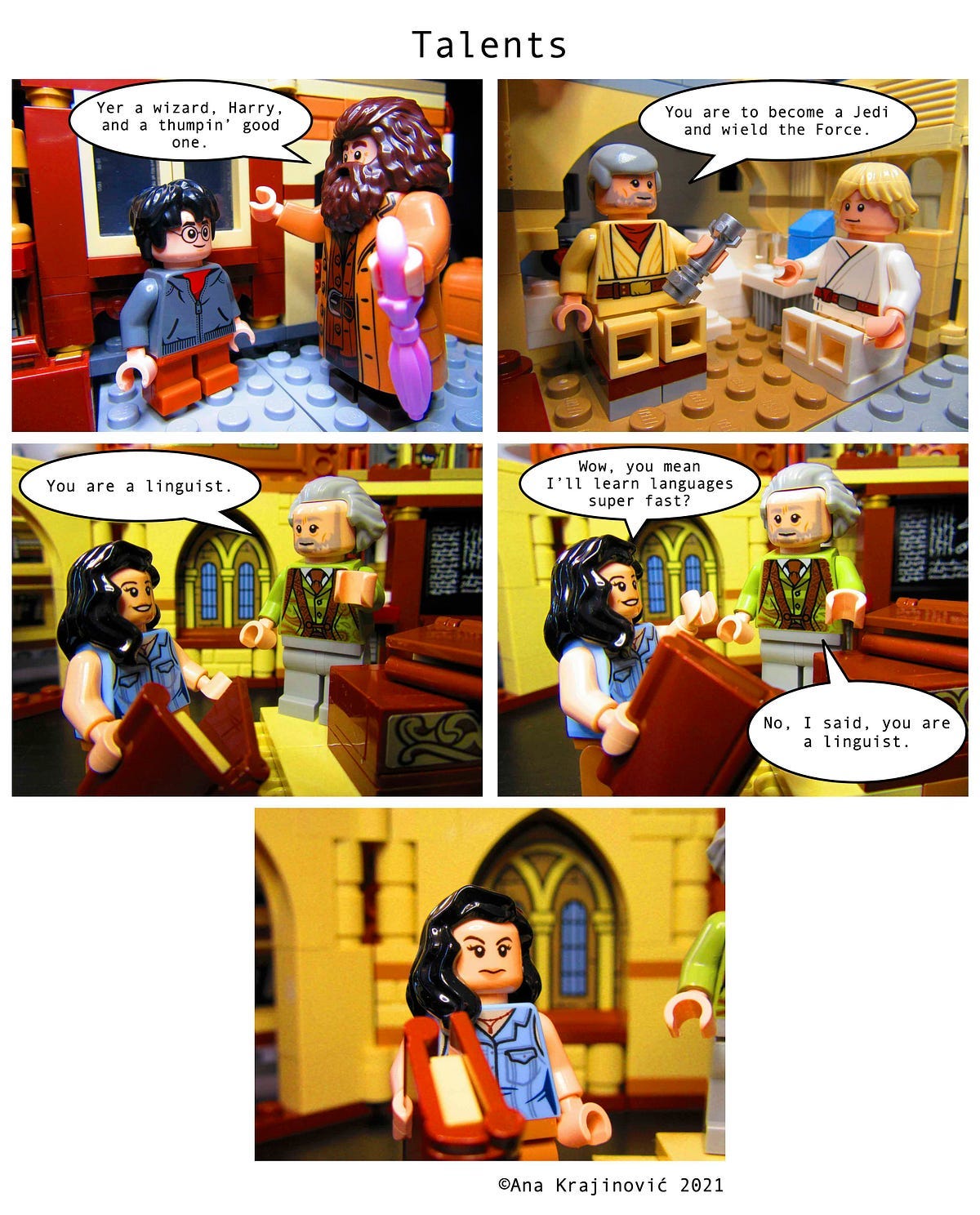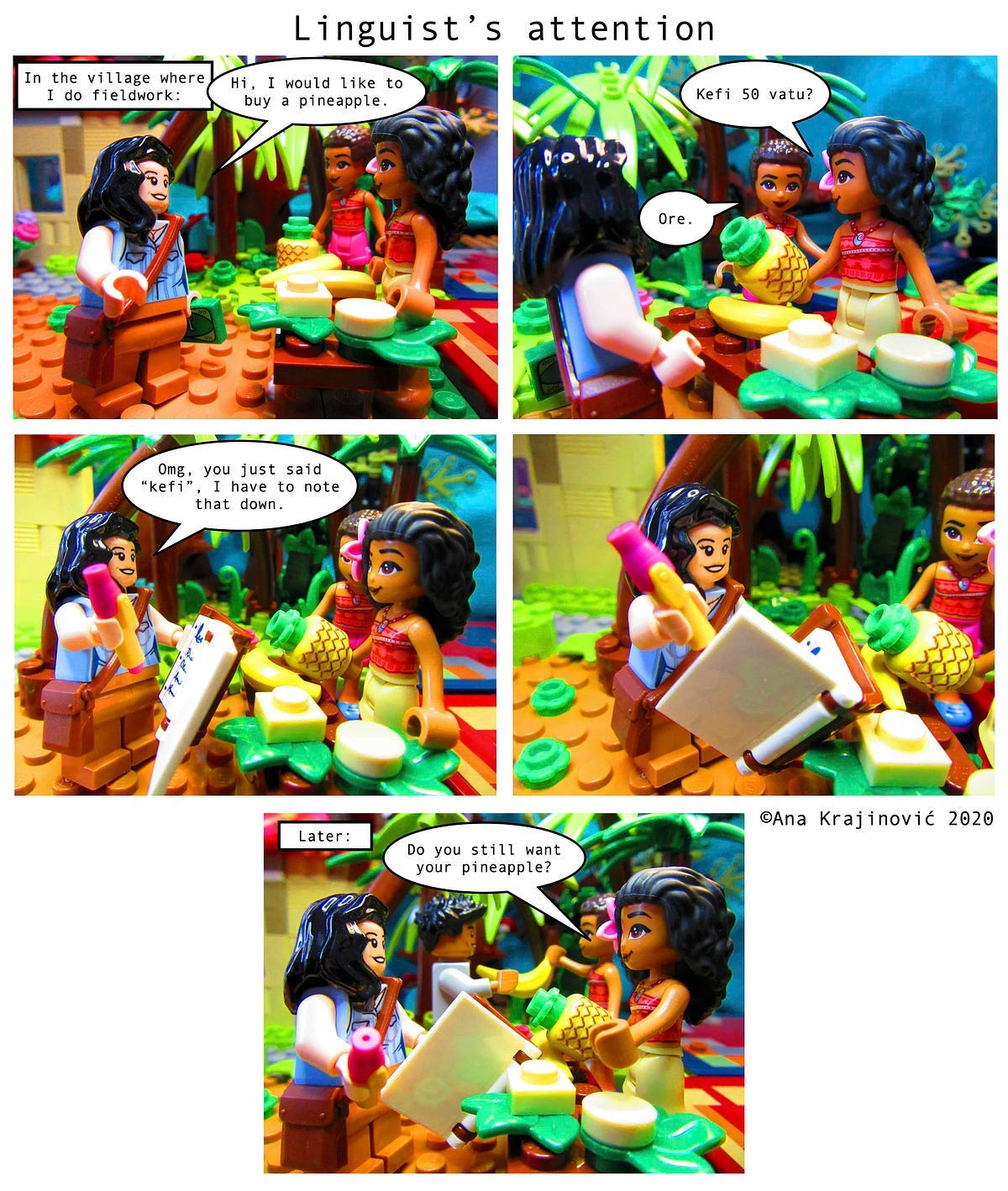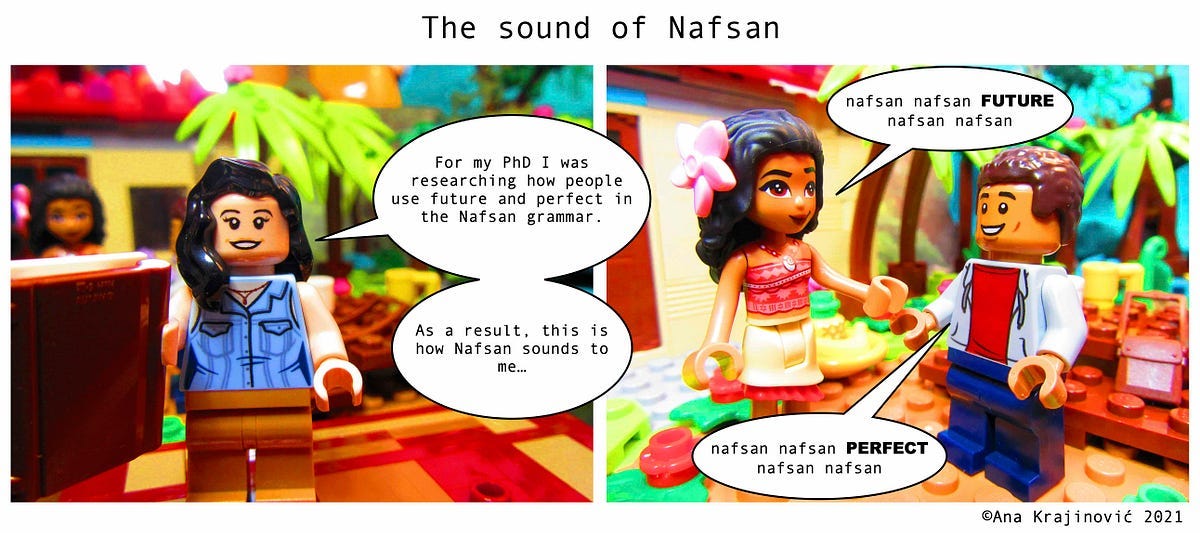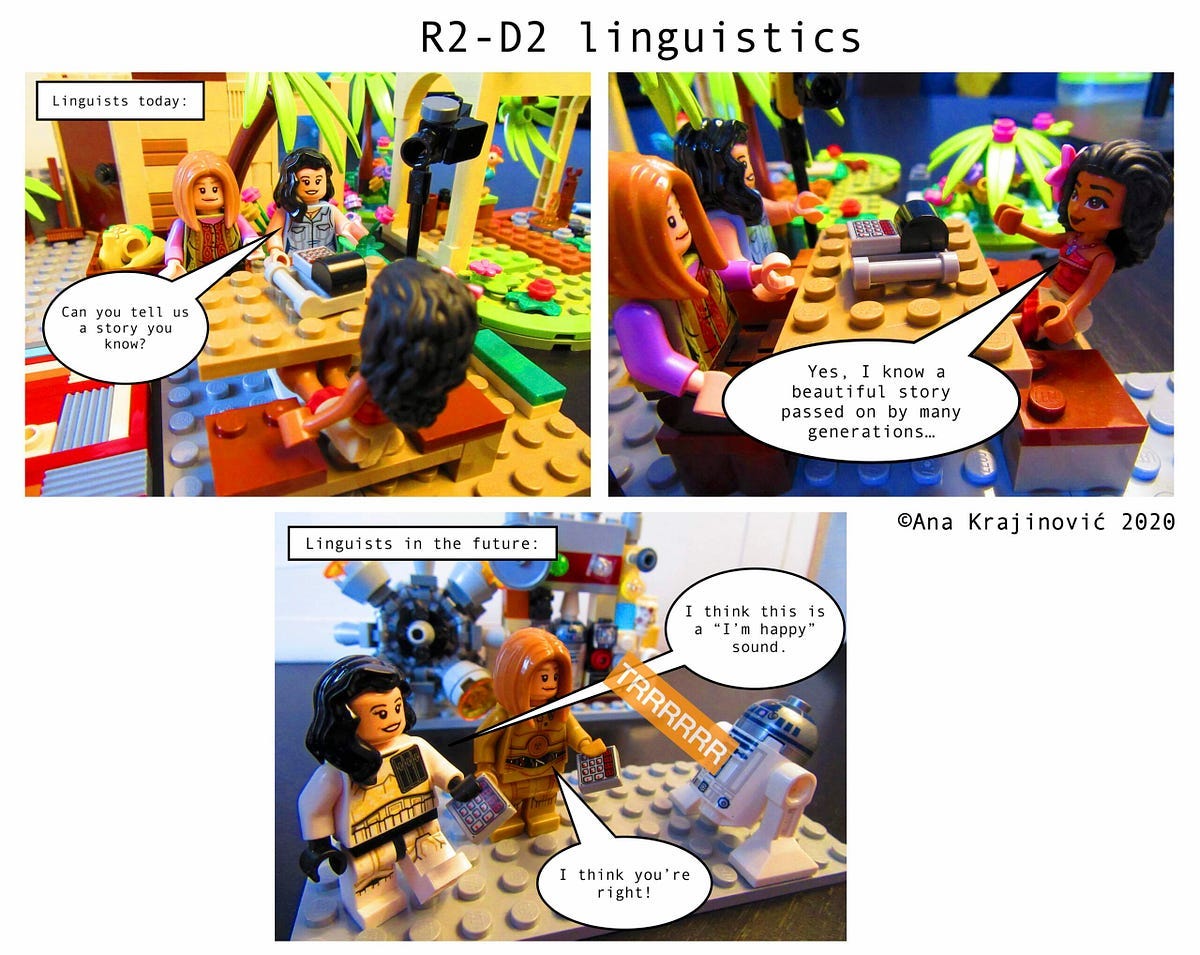I Am a Linguist and No, I Don’t Obsess Over “Correct” Grammar
3 facts you didn’t know about linguistics. Told in comics.
LANGUAGE
3 facts you didn’t know about linguistics. Told in comics.
As a linguist, I often get asked what linguists do. I also came across many misconceptions about linguistics. From “speaking a lot of languages” to “being very good at grammar”, I usually have to explain why none of these apply to me. So here it is! Below I debunk a few myths and I support these explanations with my Lego comics.
One thing to note though is that the word “linguist” is used in a somewhat different way in industry, or non-academic fields, where it can refer to almost anything: from translators to copy editors and language teachers…But here I am talking about linguistics as an academic field, as in what you would study in a linguistics course at the university.
1. No, you don’t need to speak a lot of languages to be a linguist.
A question I get most often from non-linguists is how many languages I speak. I happen to be fluent in three and a half languages (German is still lagging behind the first three…), but the reason for this is just because I live in Europe and English is not my native language. It is basically a necessity in Europe, especially if you move around a lot. It is not because I am a linguist.
I am actually painfully slow at learning languages. Maybe it has something to do with being an introvert, I don’t know. But linguistics certainly doesn’t improve your chances of learning languages faster. As a linguist, you spend a lot of time learning about different types of grammars languages can have, and what causes differences between languages. This can help you understand new grammatical structures faster, but it will certainly not help you memorize them.
Over the years, I became convinced that the issue of memorizing genders and cases and all these grammatical elements has something to do with your natural memory. I know people who can learn a case system and use it correctly in a sentence immediately. I guess this is something for neuroscience to uncover.
My message is: Be a linguist if you like a mystery! We are always uncovering new patterns in what most people consider “random stuff you say”. Well, it turns out almost nothing is random in language, and that’s what makes it so exciting as an object of study.
And here are the comics about language learning and linguistics:
2. It’s true. Linguists are overly excited about grammar (not the one you learn in school, the one you speak).
People often think that linguists obsess over “correct” grammar, the one you learn in school. But that could not be further from the truth. Linguists actually study grammar in its natural state: how it is spoken by the speakers of the language!
In fieldwork, we usually record people telling stories in their native language and then we analyze grammatical and other linguistic structures that the speaker used, as they naturally occurred in spoken language.
If this sounds confusing, remember that the “correct” grammar you learned in school is just a convention, which was decided by a handful of (important) people. Besides, every generation speaks a little different from the previous one and as a result, language as a whole changes too. This means the “school grammar” will also inevitably change with time.
So, the point of doing linguistics is to find the natural structure of any language. In fieldwork, this means we look at how language is being spoken at that particular time, but we can also try to find historical records and analyze how it changed over time.
The next two comics show a funny take on my experience doing fieldwork in Vanuatu, a small South Pacific country with a beautiful tropical climate and many volcanoes.
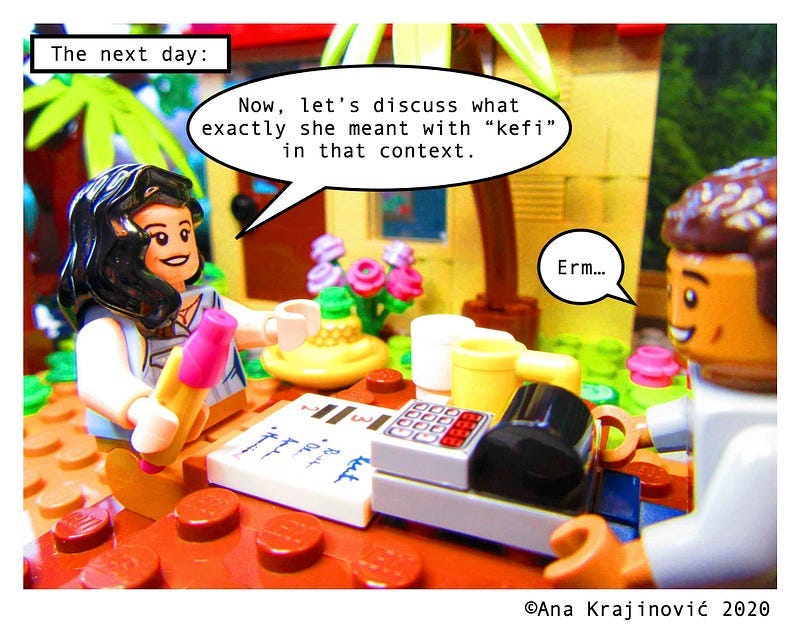
How fieldwork would be like in the Harry Potter universe.
This is how I imagine my fieldwork in Hogwarts. Once again, linguists love to study the origins of words and their meanings. I always wondered if Harry, Ron, and Hermione knew any Latin. And why is it that the accent is so important when pronouncing Wingardium Leviosa? A linguist would be able to find answers to these questions.
3. Linguistics is relevant.
When I say I’m a linguist, many people ask me why do I do what I do? What is the relevance of linguistics in comparison to, say, physics or medicine or what not? First of all, there is plenty of things within traditionally “relevant” fields like physics and medicine that are not directly relevant to our lives today. Many times we just don’t know how a certain type of knowledge we find today will be useful in the future. But besides this point, which is obvious, linguistics is in many ways directly relevant to our lives right now!
Here are just a few things linguists are doing, which are immediately affecting us:
Documenting and revitalizing endangered languages and cultures, which are dying as we speak, and won’t live into the next century. The records created by linguists will be the only records ever to have been made for most indigenous communities.
Raising awareness about multilingualism, linguistic and cultural diversity, and oppression of politically marginalized communities and countries, especially ex-colonies and those who have been enslaved in the past.
Language stands at the intersection between neuroscience, psychology, biology, sociology, anthropology, and artificial intelligence to name a few, and linguistics holds key answers for each one of these fields. Language together with our intelligence is what makes us human! Surely we want to discover how and why we speak.
Developing Natural Language Processing for Artificial Intelligence, Speech-To-Text, Text-To-Speech, etc. The future is here! This kind of technology makes it easier for people with visual disabilities to do daily tasks simply by speaking to the machine.
Hopefully, this list can make us see just how relevant the field of linguistics can be, but there are probably many other relevant aspects of linguistics I forgot to mention. If you can think of one, let me know in the comments. And if you are interested in studying linguistics, give it a try, it can take you in any direction imaginable!
And I will finish with a comic about the future of linguistics! Let’s hope it doesn’t come to analyzing R2-D2s, let’s focus instead on empowering endangered languages!




